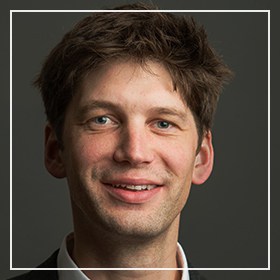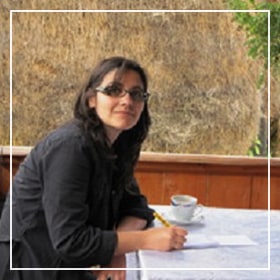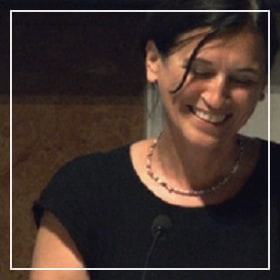In these days, two at first sight independent developments are threatening academic freedom. Neoliberal austerity politics and authoritarian political tendencies both leave their traces in academia, shaping not only the individual lives of scholars. They are also affecting research itself. The upcoming EASA AGM seminar “On Politics and Precarities in Academia. Anthropological Perspectives” (16-17 November 2017 at the University of Bern) aims to bring together the debates on these two tendencies asking how they are interrelated.
Precarity Becomes Normalcy
The concept of precarity allows to bring into conversation the two debates on political interferences and the effects of the ongoing austerity politics in academia. Anna Tsing defines precarity as a “life without the promise of stability” (Tsing 2015: 2). What once seemed the face of the less fortunate, it now seems to have become the condition of our times (see Tsing 2015: 2); not only in academia, but also beyond. Authoritarian tendencies threatening academic freedom directly or indirectly and the ongoing neoliberal austerity politics in academia with its budget cuts and increasing competition over scarce funding lead to conditions, where society is no longer able to keep this promise of stability.
Precarity has been normalised in two different ways. Firstly, it has been normalised in the sense that the threat of instability is no longer restricted to the margins of society. Instead, it has made its way into the middle of society. And secondly,
precarity has been normalised in the sense that instability is no longer the exception, but has become the very condition of contemporary society.
Political Persecution
In recent times, the rise of authoritarian governments and regimes in several countries has resulted in increasing political interferences. This ranges from subtle political pressure up to direct political interventions in academia. Four recent examples highlight this tendency.
In Hungary, an amendment to the national higher education legislation threatened the existence of the Central European University CEU.[1] In Turkey, more than 1.400 academics signed a petition calling for an end to armed conflicts in the dominantly Kurdish populated South-eastern regions.[2] Scholars who signed the petition “We will not be a part to this crime” were labelled as supporters of terrorism by the government and put on trial; followed by mass redundancies of critical academics and scholars and the shutdown of entire universities by emergency decrees after the coup attempt in July 2016. Until today, thousands of academics have lost their jobs. Subsequently, many Turkish academics have left the country, seeking refuge in Europe and other countries. Others have remained in Turkey and continue their struggle by organising public lectures in so-called Street Academies. Earlier this year in Russia, the state supervisory authority for education Rosobrnadzor forced the European University St. Petersburg to stop all educational activities after a highly debatable court decision that charged the privately funded university of violation of several legal regulations.[3] And last year, U.S.-based climate researchers copied and archived U.S. climate data, worrying that the Trump administration would dismantle climate research programmes with the result that public climate data will no longer be available.[4]
Neoliberalisation of academia
Arguably subtler, but not less effective, the ongoing neoliberalisation of academia affects the personal lives of the academic staff. Trapped in low paid and fix-term contracts, especially young researchers are constantly juggling with several teaching appointments, administrative tasks at the department, and the writing of research grant applications, while desperately trying to spare out some time to do what is supposed to be their main task; research. Replacing stable jobs for researchers and lecturers with grants and project-related funding has introduced an element of constant competition over scarce funding opportunities among researchers.
Colleagues are not only research partners, but have become more and more competitors when it comes to the next application round.
Instead of doing research, scholars are kept busy with the writing of grant applications and remain in a vulnerable position, not knowing whether they will have funding for the next year. In addition, this increasing competition over scarce funding is accompanied by the proliferation of audit culture in the academic field (see Shore and Wright 1999).
Precarisation of researchers and research
Political pressure and direct interventions on the one hand, and the growing economic pressure on the other hand—both contributing to increasing precarisation in academia—do not only shape individual life trajectories and research biographies. These tendencies also affect research itself. Arguably, anthropology is a discipline that is particularly vulnerable to these developments. With its research ideal of long-term and intensive personal engagement within a distinct field site, fix short-term contracts contradict this ideal. It leads to research projects, which are driven less by genuine scientific interest, but more and more shaped by strategic choices and external constraints.
Precarity: A Useful Concept at All?
However, there are three objections against precarity as a useful analytical lens to describe the condition of contemporary academia. The first critique argues that precarity has the effect of an othering. Thorkelson argues that the category of precarity “can lead into a split discourse, in which a liberal subject gets to take pity on the abject, precarious, or unemployed Other within its rank” (2016: 485). The second objection questions the explanatory power of precarity as an overarching concept to describe and relate the seminar’s two main themes. Political pressure and austerity politics each affect academic freedom in very different ways and are therefore not comparable. And with reference to Max Weber’s “Wissenschaft als Beruf” (1992), the third critique calls into question the diagnosis that economic precarity in academia is a new phenomenon at all. Rather, it is what characterises the field of academia from its beginnings.
Between Reflection and Action
The two-day EASA seminar pursues two aims. It brings together researchers who are studying the ongoing precarisation in academia. Either these studies are focusing on political persecution of academics and, more general, political interferences threatening academic freedom. Or the studies discuss the effects of economic precarisation and austerity politics on research, the individual lives of academics, and academia in general.
Beyond this reflection on precarisation, the seminar is also a push for action, asking what can be done against these developments that are threatening the freedom of academia in very different but related ways.
Works Cited
Shore, Cris, and Susan Wright. 1999. Audit Culture and Anthropology: Neo-Liberalism in British Higher Education. The Journal of the Royal Anthropological Institute 5(4): 557–575.
Thorkelson, Eli. 2016. Precarity Outside: The Political Unconscious of French Academic Labor. American Ethnologist 43(3): 475–487.
Tsing, Anna Lowenhaupt. 2015. The Mushroom at the End of the World: On the Possibility of Life in Capitalist Ruins. Princeton: Princeton University Press.
Weber, Max. 1992. Wissenschaft als Beruf, 1917/ 1919 ; Politik als Beruf, 1919. Wolfgang J. Mommsen, Wolfgang Schluchter, and Birgitt Morgenbrod, eds. Gesamtausgabe / Max Weber. Abt. I, Schriften und Reden, Bd. 17. Tübingen: J.C.B. Mohr (Paul Siebeck).
Endnotes
[1] https://www.ceu.edu/article/2017-03-28/ceu-responds-proposed-amendments-hungarian-higher-education-law; last accessed 10.11.2017
[2] https://barisicinakademisyenler.net/English; last accessed 10.11.2017
[3] https://www.opendemocracy.net/od-russia/polina-aronson/european-university-in-st-petersburg-survival-guide; last accessed 10.11.2017
[4] https://www.washingtonpost.com/news/energy-environment/wp/2016/12/13/scientists-are-frantically-copying-u-s-climate-data-fearing-it-might-vanish-under-trump/; last accessed 10.11.2017
*****
Featured image by christoph habel (flickr, CC BY-NC 2.0)







